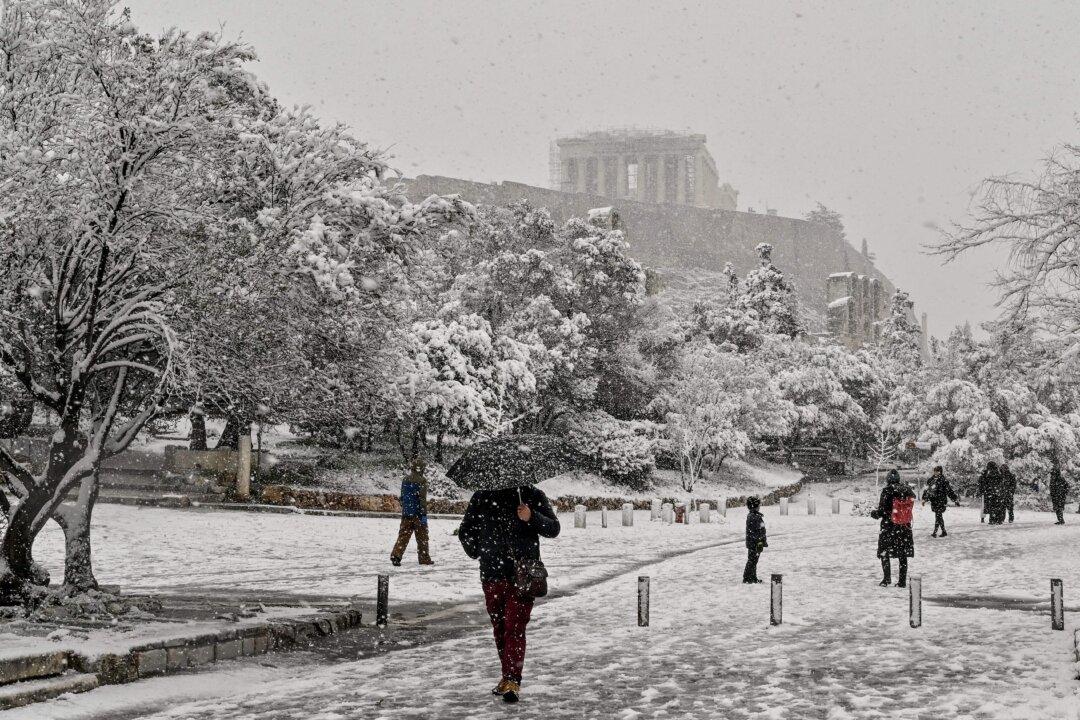ATHENS, Greece—A severe snowstorm disrupted road and air traffic Monday in the Greek capital of Athens and in neighboring Turkey’s largest city of Istanbul, while snow blanketed most of Turkey and Greece, including several Aegean islands.
The Greek government declared a holiday Tuesday in the greater Athens area, parts of central Greece and the islands to keep people from leaving home. Key branches of the civil service as well as food stores, gas stations and pharmacies will stay open.





